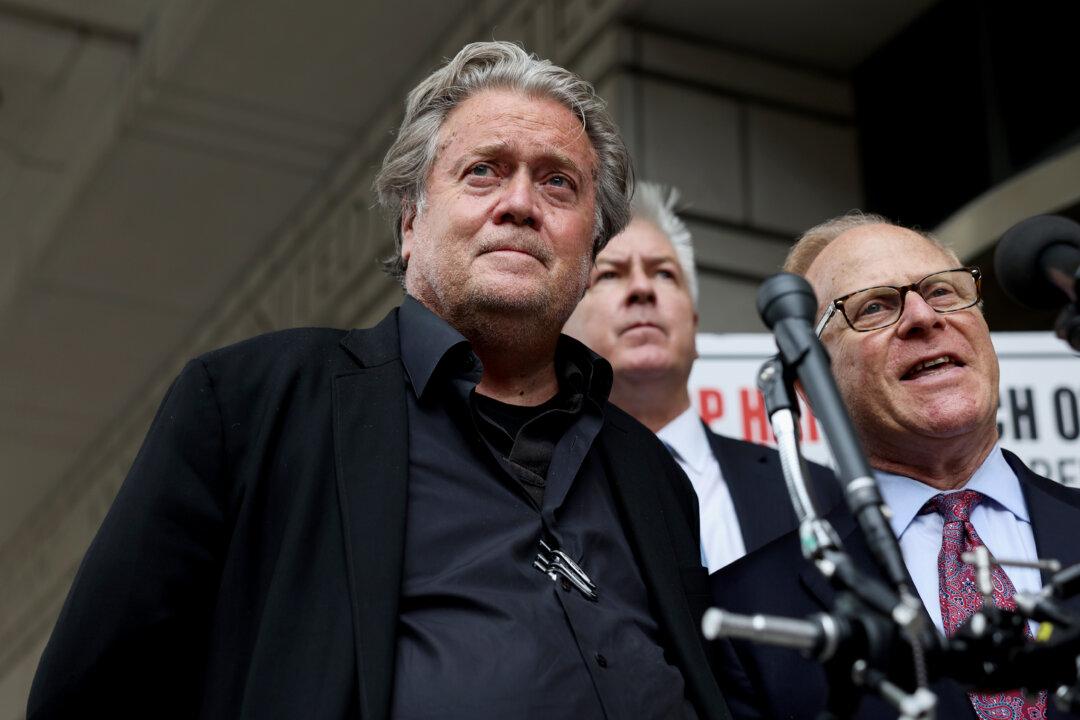A three-judge panel in the D.C. Circuit Court of Appeals heard arguments on Nov. 9 as to whether it should overturn former White House adviser Steve Bannon’s conviction for defying subpoenas in Congress’s investigation of the events on Jan. 6, 2021.
Mr. Bannon’s attorney, David Schoen, argued that the court had wrongly excluded evidence surrounding another attorney advising Mr. Bannon that he didn’t have to comply with the subpoenas because former President Donald Trump had invoked executive privilege.





